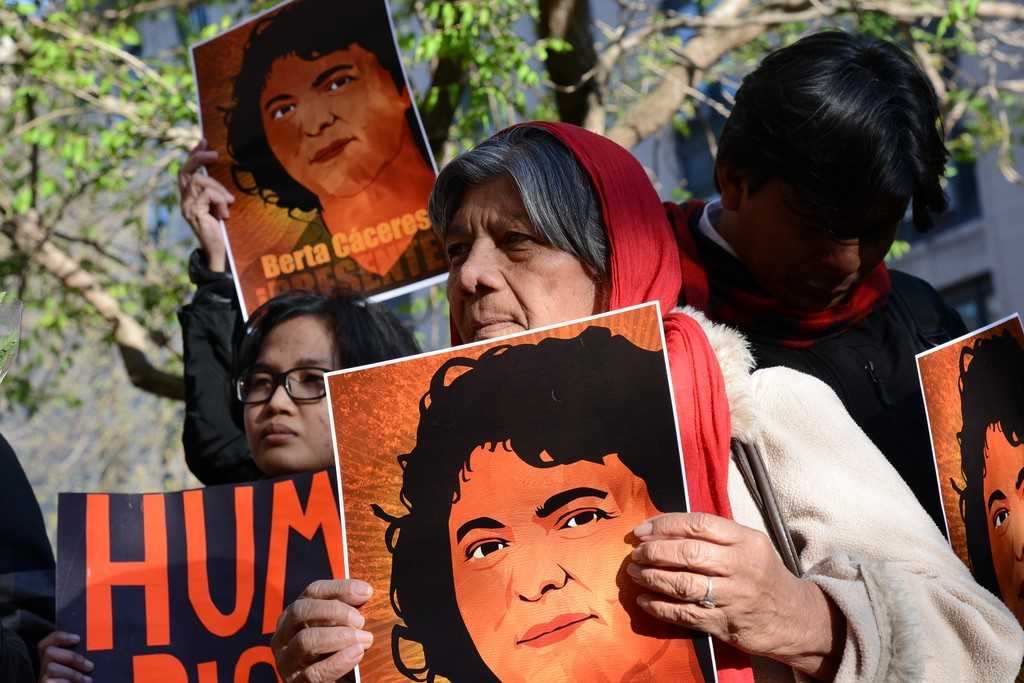Berta Isabel Cáceres Flores was a Honduran activist of the Lenca people.
She was born March 4, 1973 and grew up witnessing the violence that swept through Central America in the 1980’s. Her mother, Austra Bertha Flores Lopez, was a great role model for humanitarianism. She was a midwife and social activist who took in and cared for refugees from El Salvador, teaching her young children the value of standing up for disenfranchised people. Austra Flores served as two-term mayor of their hometown of La Esperanza, as a congressional representative, and as a governor of the Department of Intibucá
With the great influence of her mother, Cáceres grew up to become a student activist and in 1993, at the age of 19, she cofounded the National Council of Popular and Indigenous Organizations of Honduras (COPINH) to address the growing threats posed to Lenca communities by illegal logging. This organization fought for their territorial rights and to improve their livelihoods.
In 2006, community members from Rio Blanco came to COPINH asking for help. They had witnessed an influx of machinery and construction equipment coming into their town. They had no idea what the construction was for or who was behind the project and asked Cáceres to investigate. What they did know was that there was a threat against the Gualcarque river which was a place of spiritual importance to the Lenca people and viewed as sacred land.
Cáceres responded to this threat by filing complaints with government authorities, the Inter-American Commission on Human Rights, and by appealing to businesses that were funding the dam to withdraw support. Those efforts proved unsuccessful, however, and in 2013 Cáceres organized a human blockade of the road to access the construction site. The blockade stayed in place for more than a year, and protests continued to take place thereafter. Criminal charges were filed against Cáceres, and she and other activists were routinely threatened with kidnap and murder. After one protest leader was killed in 2013, Sinohydro, the Chinese partner of the Honduran company building the Agua Zarca Dam, withdrew from the project, and the International Finance Corporation later withdrew its support. Cáceres was later murdered in her home due to a fatal gunshot wound.
Despite her tragic death, Cáceres continues to be a great inspiration to many. She was a prominent figure in a very strong movement. Looking at current events like the protest at Standing Rock, we can see the attacks against indigenous tribal lands continue to rise. The fight that indigenous people continually face is a reminder that Cáceres was one person who has moved thousands, a single life turned into countless calls for justice.
Berta no murió. Se multiplicó. Berta didn’t die. She multiplied.
